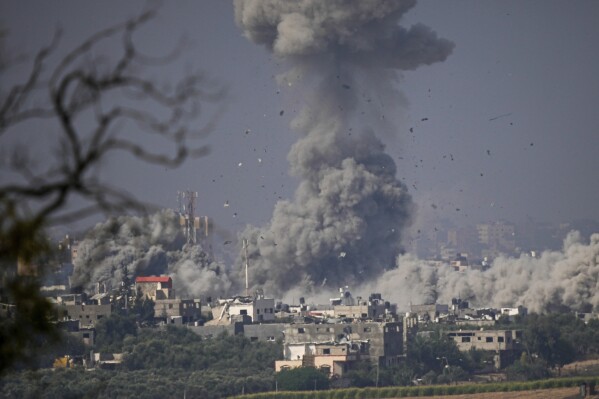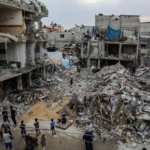Israel has not been paying sufficient attention to the protection of civilians when using precision-guided bombs during the Gaza war, the UN Human Rights Office said on Wednesday.
“The requirement to select means and methods of warfare that avoid or at the very least minimise to every extent civilian harm appears to have been consistently violated in Israel’s bombing campaign.”
Volker Türk, UN High Commissioner for Human Rights, said in Geneva that his office has investigated six Israeli attacks in the Gaza Strip between October 9 and December 2.
It assumes that bombs of the types GBU-31, GBU-32 and GBU-39 were used, which can penetrate concrete and destroy several floors of a building.
- AbdulRazaq, Saraki renew rivalry with Ilọrin Durbar
- FULL LIST: Fubara replaces Wike’s men in All Rivers LGAs
They were used to attack residential buildings, a school, a refugee camp and a market, the office said.
At least 218 people had been killed.
In an attack presumably with nine GBU-31 bombs on December 2, the destruction affected an area with a diameter of 130 metres, the UN agency said.
It noted that it had destroyed 15 residential buildings and damaged 14 others.
The section of international humanitarian law governing combat situations states that civilian facilities must be spared as much as possible during attacks.
If the presence of combatants is suspected, attacking forces must weigh up whether the damage caused does not outweigh the desired gains.
The presence of one or more terrorists or those involved in the massacres in Israel on October 7 in a building does not make an entire neighbourhood a legitimate target for an attack, the agency stated. (dpa/NAN)

 Join Daily Trust WhatsApp Community For Quick Access To News and Happenings Around You.
Join Daily Trust WhatsApp Community For Quick Access To News and Happenings Around You.


